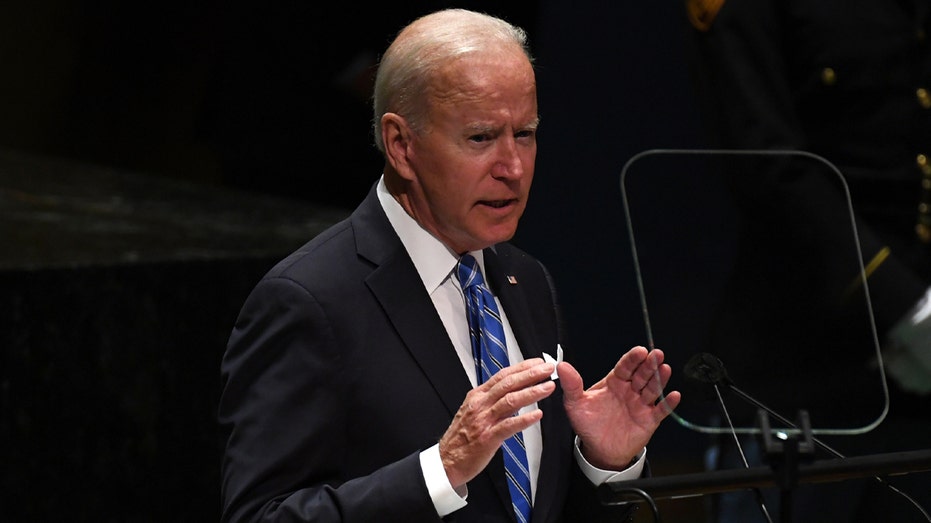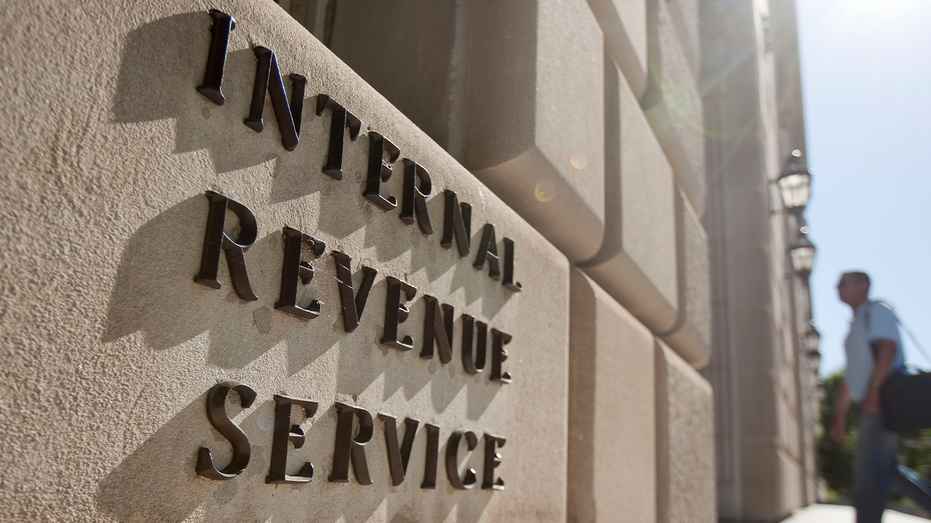Republicans unveil bill to block Biden's 'egregious' IRS bank-monitoring plan
Biden's controversial bank-monitoring plan would be banned under GOP bill
Small banks concerned over Biden’s IRS reporting proposal
FOX Business’ Madison Alworth on how an expansion of the IRS would impact the banking industry as well as individual bankers.
EXCLUSIVE: House Republicans plan to unveil a bill on Friday to block the Biden administration's deeply controversial proposal to give the Internal Revenue Service additional scrutiny over most Americans' bank accounts in order to crack down on wealthy tax cheats.
The GOP lawmakers' legislation – known as the Prohibiting IRS Financial Surveillance Act – would prevent the IRS from adopting any form of Biden's proposal by barring new reporting requirements for banks that would require them to disclose information on individuals' private accounts. The rule would not apply to an existing law that requires banks to report any transaction that exceeds $10,000 to the Financial Crimes Enforcement Network – part of banks' anti-money laundering requirements.
WHAT'S IN BIDEN'S PLAN FOR THE IRS TO MONITOR NEARLY EVERY AMERICANS' BANK ACCOUNT?
The bill from Rep. Drew Ferguson, R-Ga., would prohibit Treasury Secretary Janet Yellen from requiring financial institutions to report the in-flows and out-flows of any account they maintain, excluding any monitoring that exists under current law. It was co-sponsored by every Republican member of the powerful House Ways and Means Committee, including ranking member Rep. Kevin Brady, R-Texas.

NEW YORK, NEW YORK - SEPTEMBER 21: U.S. President Joe Biden addresses the 76th Session of the U.N. General Assembly on September 21, 2021 at U.N. headquarters in New York City. (Photo by Timothy A. Clary-Pool/Getty Images) ((Photo by Timothy A. Clary-Pool/Getty Images) / Getty Images)
"This IRS surveillance is an invasion of individual’s privacy and with Democrats' history of weaponizing the IRS for their own political gain, it's in every American's best interest that we prevent the use of private financial information for this type of egregious power play," Ferguson said in a statement to FOX Business.
Biden's plan would force banks, credit unions and other financial institutions to annually report customers' account deposits and withdrawals of $600 or more to the IRS. While individual transactions would not be listed, the policy would apply to almost every Americans' bank account.
IRS CHIEF TELLS WARREN ADDITIONAL FUNDING NEEDED TO CRACK DOWN ON TAX CHEATS
The White House has estimated the policy, which would apply to bank, loan and investment accounts, could generate about $463 billion in additional revenue over the next decade.
But the proposal has elicited a fierce backlash from banks who say it would increase compliance costs and add to the already existing burden the industry faces in turning over information to the government and from Republicans who say it amounts to the worst type of government overreach.
"We should not allow the IRS to invade the privacy of Americans by snooping into their bank accounts," Ferguson said. "The Biden Administration and Congressional Democrats have clearly demonstrated their intent to instate a broad financial surveillance regime using Americans’ private financial information."

A man enters the Internal Revenue Service (IRS) building in Washington, D.C., U.S., on Friday, May 7, 2010. Andrew Harrer/Bloomberg via Getty Images (Andrew Harrer/Bloomberg / Getty Images)
Despite the criticism, the White House has stood by the plan. In a public memo on Thursday, Natasha Sarin, Treasury's deputy assistant secretary of economic policy, said the proposal has been "marred by misinformation, as opponents have elevated the pernicious myth that banks will have to report all individual customers' transactions to the IRS."
GET FOX BUSINESS ON THE GO BY CLICKING HERE
The Treasury Department argued that collecting additional information would help the IRS sniff out individuals who may be skirting their taxes.
"Suppose a taxpayer has $1 million of deposits flowing into their checking account in a year, but reports only $100 of income to the IRS," Sarin wrote. "There may be a benign explanation for this, but it is suspect — and something the IRS can prioritize looking into when selecting returns for potential audit scrutiny."





















